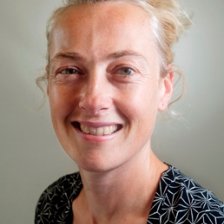Rationale and common goals
Depression, anxiety disorders, psychosis, and insomnia together constitute the majority of psychiatric disorders with often common risk factors. Our research program therefore puts mood, anxiety, and psychosis at a central position and focusses as well on two major risk factors: stress and sleep. The MAPSS program (Mood, Anxiety, Psychosis, Stress, and Sleep) uses a translational and transdiagnostic perspective at the preclinical and clinical level. Such a cross-disorder approach with a life span perspective (from early vulnerability to late disease chronicity) may enhance our knowledge and treatment possibilities for these disorders, which constitute a huge burden to patients but also to the society as a whole.
With regard to stress and sleep, both (pre-)clinical and epidemiological studies have shown that adversity increases the risk for psychopathology involving mood, anxiety, and psychosis. Sleep has an essential role in emotional memory (re)consolidation and emotion regulation. Insomnia interferes with stress resilience and is a major risk factor for psychiatric disorders like depression and anxiety disorders. Traumatic stress, maladaptive memories or unresolved emotions, as well as problems with sleep (insomnia, hypersomnia) during early, adolescent or adult life are prevalent in society and are at the base of depression , anxiety, and psychotic disorders. With overlapping comorbidity among these disorders, both in development as well as clinical symptoms, common mechanisms related to stress and sleep may play a role in their ontogeny.
Aims
- Identify neurobiological mechanisms that mediate vulnerability to and progression of mood, anxiety and psychosis, particularly related to stress and sleep. To this end, we apply a transdiagnostic and translational approach which includes genetics, molecular approaches, animal models, and identification of critical developmental periods in the etiology and persistence of mood, anxiety, and psychosis.
- Characterize and find mechanistic underpinning of treatment options (pharmacological, behavioral, nutritional or neuromodulatory interventions) at the biological, behavioral and psychological level.
Assets
Our strengths are the dissection of the mechanisms underlying these disorders in a translational approach using state-of-the art tools and preclinical models, large available patient cohorts and biobanks, and setup of clinical trials.
A first asset is the presence of validated translational animal models of mood and anxiety as well as that for emotional memory (re)consolidation that are critical for understanding basic behavioral, molecular and cellular mechanisms, as well as in exploring novel intervention methods. These models that can be studied from the synapse level to brain circuitry are essential in bridging the gap between human genetic, pathophysiological and brain imaging studies.
A second asset is the presence of large patient cohorts related to common mood disorders (e.g. unipolar, bipolar depression), common anxiety disorders (e.g. panic disorder, social phobia, generalized anxiety disorder), disorders related to psychosis (e.g. schizophrenia, schizoaffective disorder) and those related to disturbed sleep (e.g. insomnia) via various large-scale ongoing cohorts such as the Netherlands Study of Depression and Anxiety (NESDA), the Genetic risk and outcome of psychosis (GROUP) study, and the Dutch Sleep Registry. In addition, we are able to study the normal variation in emotional states as mood and anxiety using general cohort databases such as the Netherlands Twin Registry (NTR). Furthermore, we have ample experience in executing both complex, high-end clinical trials and large nationwide clinical trials. There is extensive expertise in implementing broad clinical (endo)phenotyping (using MRI, PET, EEG/MEG), as well as studies of (novel) biomarkers, neuroanatomy, neuropathology, transcriptomics, proteomics, gene finding, functional characterization, cellular and animal models.
Making the difference
The overlapping nature of mood, anxiety, and psychosis with common risk factors implies a shared underlying pathophysiology and hence require a transdiagnostic approach from thepreclinical to the clinical level. Our focus for the coming years is o collaborative research projects within the MAPSS program and with other research programs. This interdisciplinary setting will allow to gain knowledge on mechanistic insights, identification of key risk factors, developmental trajectories and proof of concept interventions and for direct translation into clinical research. In particular, the focus on transdiagnostic factors like sleep and stress has the potential to bridge the gap between preclinical and clinical research.
Furthermore, because mood, anxiety and psychosis are comorbid with other psychiatric diseases (e.g. addiction) and personality traits (e.g. impulsivity and compulsivity), the MAPSS program closely interacts with other psychiatric disorders and programs in Amsterdam Neuroscience to disentangle the underlying brain mechanisms.
Internships
Students who are looking for an internship within the MAPSS program are advised to visit the websites of the individual researchers, as to comply with the individual application procedures, as well as to enable viewing what their research actually entails.
Program leaders
Visit the website of Center for Neurogenomics and Cognitive Research (CNCR) and the website of Swammerdam Institute for Life Sciences Neurosciences (SILS) to read more about fundamental research performed in the context of the MAPSS program; see individual researchers for publications and their specific topic of research.
Visit psychiatryamsterdam.nl for clinical research in the context of the MAPSS program.
Taskforce team
Program members
-
Aartjan BeekmanPI PROF.DR.
-
Amy Tedja
-
Aniko Korosidr.
-
Anil Ori
-
 Anja LokPI MD PhD
Anja LokPI MD PhD -
Anna Domen
-
Anna Stohr
-
 Anouk de Wit
Anouk de Wit -
 Arjan SchroderM.D., Ph.D.
Arjan SchroderM.D., Ph.D. -
Arjen SutterlandMD
-
 Brenda PenninxPI PROF.DR.
Brenda PenninxPI PROF.DR. -
Caroline Broeder
-
 Christiaan VinkersPI PROF.DR.MR. PROF.DR.MR.
Christiaan VinkersPI PROF.DR.MR. PROF.DR.MR. -
 Claudi BocktingPI PROF.DR.
Claudi BocktingPI PROF.DR. -
Daan Neuteboom
-
Danai Riga
-
Dick VeltmanPI PROF.DR.
-
 Didericke RhebergenPI DRS.
Didericke RhebergenPI DRS. -
Dore Loef
-
Elseline HoekzemaPI DR.
-
 Eric van ExelPI PROF.
Eric van ExelPI PROF. -
Eugenio van SomerenPI DR.
-
Eus van Someren
-
Eva Lukas
-
Eva Oostra
-
Felix Linsen
-
 Femke LamersPI DR.IR.
Femke LamersPI DR.IR. -
Femke Roig Kuhn
-
 Greta Piwanski
Greta Piwanski -
Harm Krugersdr.
-
 Hein van MarlePI DR.
Hein van MarlePI DR. -
Hilgo BruiningPI DR.
-
Hiske BeckerMD
-
Ilse Kolmans
-
 Isidoor BergfeldDR.
Isidoor BergfeldDR. -
Jakob van Gaalen
-
 Janina Kupke
Janina Kupke -
Jasmin Pasteuning
-
 Jentien VermeulenPI DR.
Jentien VermeulenPI DR. -
Joeri ZoonDRS.
-
 Joost Gulpen
Joost Gulpen -
 Joram Muldr.
Joram Muldr. -
 Judy LuigjesPI MSc
Judy LuigjesPI MSc -
Julia Binnewies
-
Julie HagenMSc
-
 Jurjen LuykxPI DR.
Jurjen LuykxPI DR. -
Justine de WithMSC.
-
 Karel ScheepstraPI
Karel ScheepstraPI -
 Klara Spalek
Klara Spalek -
Laetitia SmariusMD
-
 Laura HanDR.
Laura HanDR. -
Laura Supiot
-
Laurens van de Mortel
-
Lieuwe de HaanPI Prof. PhD
-
Lilian Bot
-
Lisa Geertjens
-
Madeleine DrentPI PROF.DR.
-
 Mardien OudegaDR. senior researcher MD, PhD, MSc
Mardien OudegaDR. senior researcher MD, PhD, MSc -
 Marieke van der Pluijm
Marieke van der Pluijm -
 Mariska BotPhD DR.
Mariska BotPhD DR. -
 Maximilianus StekPI PROF.DR.
Maximilianus StekPI PROF.DR. -
Merel Koster
-
Michel van den Oever
-
 Milou SepPhD
Milou SepPhD -
Miranda OlffPI Prof. PhD
-
 Mirjam GeerlingsPI
Mirjam GeerlingsPI -
Mirjam van TrichtPhD
-
Monja Hoven
-
Nadine Berkhof
-
Nele Bergers
-
Nina Schirmbeck
-
Nora RuniaBSc MSc
-
Nuray Cakici
-
Panthea Nemat
-
 Pierre BetDR.
Pierre BetDR. -
Pieter EikelenboomPROF.DR.
-
Piotr Jazdzyk
-
Ploon de Potter
-
Rada Veeneman
-
 Rick Jansen
Rick Jansen -
 Robin van EckDR.
Robin van EckDR. -
 Sabine Spijker
Sabine Spijker -
Sanne van der HeijdenBSc
-
Seyed Payam Safavi
-
 Simon Braak
Simon Braak -
 Sophia van der SluisPI DR.
Sophia van der SluisPI DR. -
Sophie van 't Hof
-
Tanja SuPhD
-
 Tessa Zonneveld
Tessa Zonneveld -
Thijs Burger
-
Tinka Bröring - Starre
-
 Ursula KlumpersDR. PhD
Ursula KlumpersDR. PhD -
 Wouter PeyrotDR.
Wouter PeyrotDR. -
Yak Mee Wong
-
Yulan Qing
-
 Yuri MilaneschiPI DR.
Yuri MilaneschiPI DR. -
Zhong Zhong




